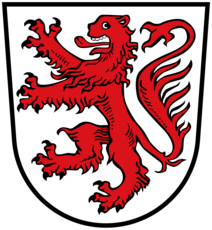Graaf in de Derlingau 1031 of later. Markgraaf van Friesland. Graf v.Braunschweig und Westfriesland, Graf im Derlin- und Gudinggau, comes privignus inperatoris
(in Prometheus Deel XIII, pag. 304, trouwt hij Gertrud van Egisheim, welke op Adel-Digital nr. 10 niet te vinden is evenals het huwelijk. Deze en andere bronnen melden Gertud van Friesland als echtgenote, waarbij Adel-Digital stelt dat zij een van Egisheim is)
The next assumed member of the Brunonid (Brunoner) house was a Count Liudolf, who was mentioned in 942. The first certain member of the house was Brun I, Count of Brunswick, who is attested since 991. Count Bruno I sought without success to succeed Otto III in 1002 as King of the Romans. In 1067, Bruno's grandson Egbert was granted the Margraviate of Meissen by Emperor Henry IV. His son, Egbert II, opposed that same ruler and lost his rights to both Meissen and Frisia. Egbert II's death marked the end of the Brunonid line. Egbert II's sister, Gertrude of Brunswick, had a daughter with her second husband, Henry the Fat, Margrave of Frisia of Northeim. This daughter, Richenza (d. 1141) married Lothar of Süpplingenburg, who was Duke of Saxony and later became Holy Roman Emperor. Their daughter Gertrude (d. 1143) married Duke Henry the Proud of Saxony and Bavaria, a member of the House of House of Welf. In this way, the Welf dynasty gained the Brunonid properties around Brunswick, which they would hold until the 20th century.
Bruno was Count in the Derlingau, the Nordthüringgau, the Hastfalagau, the Salzgau, the Gau Gretinge, and the Gau Mulbeze, with Brunswick as his residence. Bruno's father is assumed to have been Count Liudolf (died 993). In 1002, Brun married Gisela of Swabia, who later became wife of the Emperor. Their oldest son was Liudolf (about 1003–1038). In 990, Brun was a member of the Saxon army that supported Mieszko I, Duke of Poland, against Boleslaus II, Duke of Bohemia, in Silesia. Brun participated in the election for King of the Romans of 1002 (after the death of Otto III, Holy Roman Emperor) as a candidate and elector. When his own candidacy failed, he supported Herman II, Duke of Swabia, whose daughter he married in the same year.
Laatst gewijzigd:
18 november 2020
link:
https://ngv-stambomen.nl/Hagenbeek/2966
Gekopieerd!
E-mail een vraag aan Cees Hagenbeek over deze persoon.




